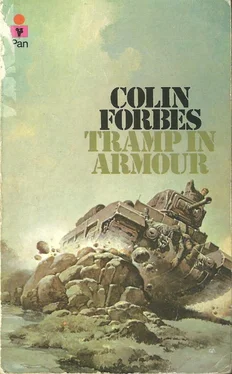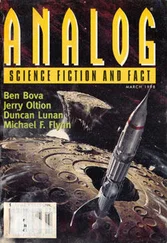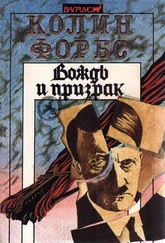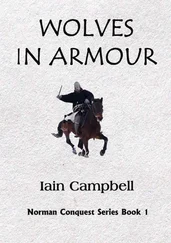It’s hitting him, thought Barnes. He’s in a state of shock. It just depends on how he comes out of it. Reynolds still hadn’t replied to the question and he remained silent while he fumbled with the shirt buttons. Then he reached for his battledress jacket but Mandel lifted it off the table, holding it open for his arms. Carefully, Reynolds slipped inside it, doing up the cuffs and then the buttons down the front. When he had finished he sat down heavily on the chair and picked up a glass of wine, draining the contents in one long swallow. Putting the glass down he looked up at Barnes, his voice a growl.
‘Give me half an hour and I’ll drive you to the coast.’
He’s indestructible, Barnes told himself. He’s been driving almost non-stop most of yesterday; he had two and a half hours’ sleep last night, less the night before; both bis arms have been badly burned, and even now his voice sounds vigorous. He decided he still had a driver and went over to Penn, another face as white as death but here there was an awful weariness, and whereas Reynolds sat stiffly upright at the table Penn sank back limply as though he might never move again. He grinned up at Barnes.
‘I’m not as bad as I look. Fortunately.’
‘Of course you’re not. I didn’t see your arm – what’s it like?’
‘A bit of a mess – but you should see Reynolds! I suppose you know the back of your own hand could do with a little attention?’
He had just made the remark when Marianne took charge of Barnes, guiding him over to the sink where she held his hand under the cold water tap. The sudden icy douche made him jump and he saw that raw skin was peeled back and hanging loose. While she applied ointment and then a bandage he looked round the kitchen. At least the Mandels had avoided severe burning: Mandel himself had a few blisters on his right arm and he had lost half his eyebrows, but apart from a singed hair-line Etienne was untouched, probably because he had fought the fire from the seat of the power-grab. When he tried to thank them Mandel wouldn’t listen, repeating that it was part of their war effort and that in any case the British were fighting for France as well as for themselves. Because there seemed to be no more to say Barnes went back outside to straggle with the engine.
The hull was still very hot but he found that he could cope and he spent half an hour checking for the fault, feeling an enormous sense of relief that the tank had survived and enjoying himself once more with mechanical work, work which gradually drained away the tensions from his body. When he climbed down inside the driver’s compartment the engine started first time. They were on their way.
West and then north – that would be the route they would follow. The tank climbed up to the summit of the hill crest at top speed in the mid-morning sunshine. The rim of the turret was hot to the touch., but this heat came from the steady blaze of the sun rather than from the incandescence of fire. Looking back for the last time Barnes saw the tiny figures of the Mandel family standing outside their farm, then they vanished as Bert moved down the other side of the hill. The road ahead to Cambrai was deserted and the only sign of movement came from people working in the fields several kilometres from the roadside.
In spite of his throbbing shoulder, his aching knee, his hand which burned as though a fire smouldered under Marianne’s bandage, Barnes experienced a sense of quiet exhilaration: they were on the move again once more and now he knew exactly where he was heading for. His fateful decision to change direction – to head west and then north for Calais instead of north-west to Arras [5] The Allied forces had withdrawn from Arras at 10 pm on Thursday, May 23rd. During their brief counter-attack, I Army Tank Brigade halted the 7th Panzer Division commanded by Major-General Erwin Rommel and caused a panic in the German High Command.
– was based on a process of thought which had been going on inside Barnes’ head for nearly two days, and he was compelled to rely on only two sources of information – the sketchy news bulletins and the evidence of his own eyes. It was what he had seen which more than anything else had convinced him that this was a revolutionary development in warfare based on the fantastic mobility of the tank.
The Germans had disrupted all previous ideas of a static front line by driving their Panzer divisions non-stop across France, driving forward without any attempt to consolidate what they had conquered, relying almost entirely on the elements of surprise and terror to disorganize their enemy. The conclusion to be drawn seemed clear enough — providing one threw out of the window nearly all one’s previous ideas of tank warfare. If the Panzers could move across such huge distances without waiting for the infantry to occupy them, then it should be possible for a lone British tank to come up behind them providing that it escaped detection. And then there was the question of the dumps. Barnes thought back over the conversation he had had with Jacques as he wrestled with the engine.
‘If you can drive all the way here from Abbeville, Jacques, you must have plenty of petrol.’
‘The Germans have plenty of petrol.’
‘What does that mean?’
‘You won’t tell my uncle – he worries about these things?’
‘I asked you because we’re out here on our own.’ Barnes stopped working for a moment. ‘Look Jacques, I’ve got to get an idea of the position as accurately as I can. You’ve been haring all over the countryside and you’re the only one who can tell me.’
‘I took it from a German petrol dump near Abbeville. All I had to do was to creep under a wire fence well away from the guards and take what I wanted. They’ve threatened to shoot anyone found on what they call German property – but that’s to scare people off because they can’t guard the petrol.’
‘Something was said about ammunition dumps, too.’
‘The same with them. I got inside one place with a friend and there were shells and boxes of ammunition all over the place.’
‘I find that hard to believe, Jacques.’
He flushed and then grinned. ‘That is because you do not know what is happening. The German tanks and guns have broken through with their supply columns but the infantry have not yet reached them – so they can’t guard their dumps properly.’
‘I’m beginning to get the idea,’ Barnes encouraged him.
‘It is like the curfew in Cambrai, They say they will shoot anyone found on the streets at night but that is to scare people. I have heard that you can walk all through the town after dark without seeing one German soldier except near the town hall. I think,’ he said shrewdly, ‘the main reason for the curfew is so that people will not know how few Germans there are in Cambrai at the moment.’
‘And you say the road to Abbeville is clear all the way?’
‘Except for Cambrai and the three road-blocks outside Abbeville. I could mark their position on this,’ he offered, pointing to the map spread out over the hull.
‘Do that, would you?’
He went oh checking the engine while Jacques marked the road-blocks and then asked a fresh question.
‘What about the roads south towards the Somme?’
‘I don’t know the position there -I have not been that way, you see.’
‘And which route do you take when you by-pass Cambrai?’
‘This way, to the south. I will mark it for you.’ When he had finished he looked up, his expression blank. ‘If you turned north beyond Cambrai you might get through to Boulogne. I know a way which goes close to St Pol and Fruges, but it is not the main road – it ends up at Lemont where I live, near Gravelines. I have often used the route when driving from Lemont to Abbeville. I will mark that, too, just in case.’
Читать дальше








![Невилл Форбс - История Балкан [Болгария, Сербия, Греция, Румыния, Турция от становления государства до Первой мировой войны] [litres]](/books/390301/nevill-forbs-istoriya-balkan-bolgariya-serbiya-gre-thumb.webp)


